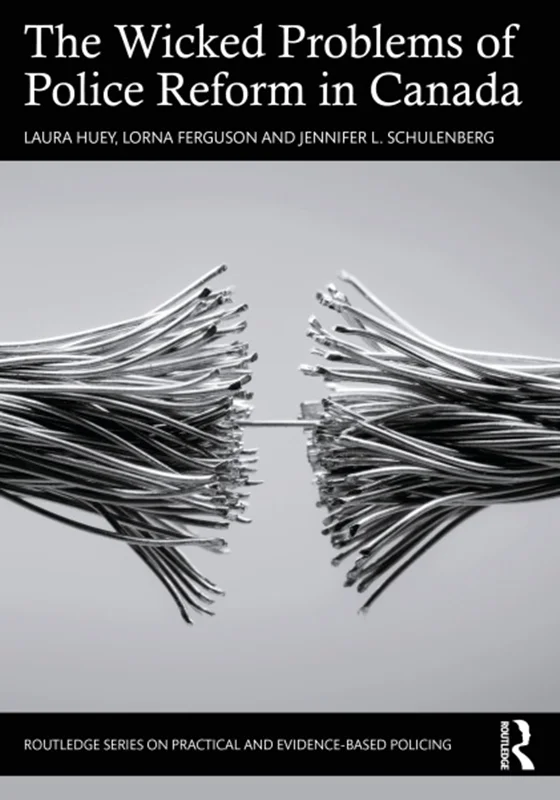The Wicked Problems of Police Reform in Canada
Series on Practical and Evidence-Based Policing, Laura Huey, Lorna Ferguson, Jennifer L. Schulenberg, 1032281855, 1032283505, 978-1032281858, 9781032281858, 978-1032283500, 9781032283500, 978-1003296447, 9781003296447, B0B4Y324FS
This book looks at police reform in Canada, arguing that no significant and sustainable reform can occur until steps are taken to answer the question of 'What exactly do we want police to do?' Adding challenge to this is that setting boundaries on what we expect the police to do requires grappling with the complex social problems we ask them to resolve. In public policy language, these are ‘wicked problems’ – social or cultural issues frequently seen as intractable.
Authors Huey, Ferguson, and Schulenberg, all policing scholars, draw on a unique collection of data to explore these issues: over 20 years of research (2000– 2021) ranging from in-depth interviews, surveys, and field observations to document analysis and systematic social observation. Pooling this data generates a national-level picture of changes in the policing operational environment over these decades. This book focuses on four particular wicked problems (mental health, substance misuse, homelessness, missing persons) with causes and potential preventative treatments that lie primarily outside the criminal justice system and yet continue to be treated as 'policing problems.' Bringing about changes in public policing requires changes in public policy, and these are precisely the types of wicked problems that need innovative policy solutions.
This book is suitable for a wide range of audiences within and outside Canada, including law enforcement and community leaders; scholars and policy experts who specialize in policing; students of criminal justice, organizations, and management; and citizen-consumers of information about policing.


